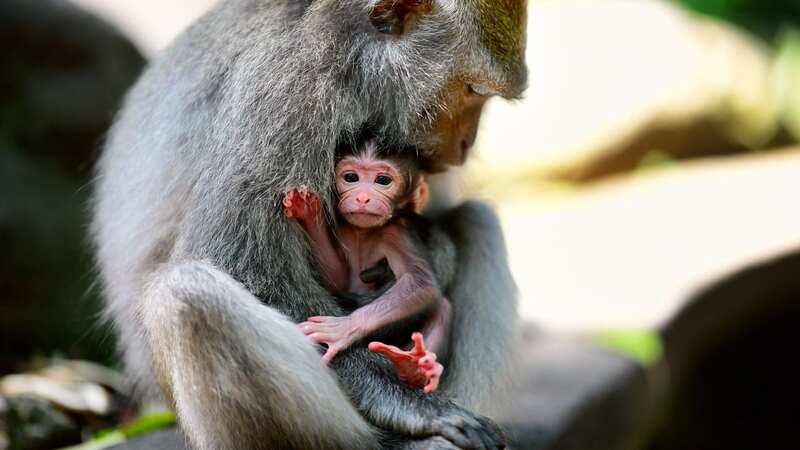'Nearly 6,000 monkeys flown into UK for lab testing in extremely cruel practice'

In the past three years nearly 6,000 monkeys have been flown into the UK for lab testing.
Campaigners say these primates have to undergo long and stressful journeys starting in Africa and Asia –some kept in stopover spots in Europe – before being sent to labs in the UK.
They warn that the animals are denied the lush foliage of their jungle homes and spend their lives behind bars on concrete, while their offspring are exported overseas. The figures are just the tip of the iceberg as full data in Vietnam is not available, they add.
The holiday island of Mauritius is now one of the largest suppliers of long-tailed macaques and the world’s largest exporter of wild-caught monkeys for research and testing.
Although Britain has banned tests on wild primates it still allows their offspring to be imported for research.
 Furious chimp launches bottle at girl filming him leaving her bleeding at zoo
Furious chimp launches bottle at girl filming him leaving her bleeding at zoo
Action for Primates say the capture and removal of wild primates from their native habitats and social and family groups is “extremely cruel and inflicts great suffering and distress”.
It also warns that by allowing the import of the offspring of wild-caught monkeys, or those from facilities that trap wild monkeys, “the UK is continuing to fuel the cruel wild-caught trade”.
Globally, the long-tailed macaque is the most heavily traded primate and the most widely used in research.
Experiments to assess their reactions to drugs involve restraining them and injecting them or force-feeding them through a tube.
Their status increased last year to endangered from vulnerable on the International Union for Conservation of Nature’s Red List. It was based on the exploitation of the species, including testing, hunting, capture for the ‘pet’ trade and habitat destruction. It makes them one of the most persecuted and endangered primates.
The Home Office says research using animals is carried out only where there is no alternative and is “governed by strict regulation” to “support the wellbeing of humans, animals and the environment”.
The development of new medicines to treat cancer and other diseases is vital. But further research to find alternative ways to test without suffering, pain and contributing to driving a species to the brink of extinction is also essential.
Read more similar news:
Comments:
comments powered by Disqus

































